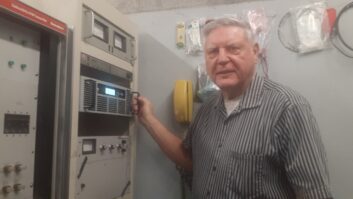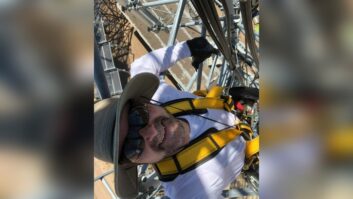The New Jersey Broadcasters Association has changed its position regarding the protected contour limit for full-service broadcasters and emphasized other opinions about the interference complaint process in reply comments responding to MB Docket No. 18-119 submitted this week to the Federal Communications Commission.
In his reply comments on behalf of the association, NJBA President/CEO Paul Rotella observes that “the proposed limitation to the 54 dBu contour is … the most significant issue that all broadcasters have equally weighed in on.” In the association’s original comments, they agreed to “the 45 dBu contour as the outer limit for complainant objections,” but after reviewing the engineering reports submitted by other broadcasters, NJBA now believes “the more properly purported contour should be the 39-40 dBu” because of how much “listening occurs well outside the 54 dBu contour.”
However, NJBA still maintains that to “now afford translator operators ‘greater’ protections and in turn ‘limit’ the protections that full-service broadcasters can expect, flies in direct contrast to how each party understood the underlying protections they could expect when the respective licenses were granted to each party.”
But “in the spirit of compromise” (as requested by the commission), NJBA suggests a graduated plan in which the 40 dBu contour limit only apply to co-channel and first adjacent translator applications, while 45 dBu would apply to second adjacent translator applications and the 54 dBu contour would apply to third adjacent translator applications.
The reply comments also addressed the issue of requiring complainants to be more actively involved in the process or risk their complaint being discounted. The NJBA says the suggestions that people would take private time to follow up is naive and and discounts the realities of modern life, even if those same people do “people want their favorite radio stations to be protected when disturbances arise.”
Related to streamlining the process for complainants, the NJBA does support using electronic signatures for complaints, since the commission already allows them for other documents, as well as online forms to submit complaints. NJBA suggests that “broadcasters would be required to post a form that discusses the interference and then requiring online submissions to include a minimum amount of the information … along with a map of the area in which listeners can post the interference they have observed.”
However, NJBA opposes the “proposed 1,000 feet distance separation on complainants” on the grounds that “a complaint is a complaint and the proposed distance separations are silly.” (Especially in high-density areas like apartments.)
Their comments also say “broadcasters should be permitted the ability to seek interference objections” via social media accounts, and belonging to a Facebook group or equivalent online affiliation should not disqualify complainants. NJBA emphasizes this point in conjunction with the National Association of Broadcasters’ proposal that a minimum number of complaints be increased to six, which NJBA concurs with. However, NJBA also wants the time period for gathering complaints to be extended to at least 30 days prior to grant of a translator application and a year following grant of license and beginning of operation, which they say would accommodate “seasonal audience levels” caused by tourist season shifts without overly complicating the process.
The association also indicated support for “allowing FM translators to resolve interference issues by changing channels to any available frequency using a minor modification application,” but says “‘band hopping’ from reserved to non-reserved outside of a window would continue to be considered a major change application.”







